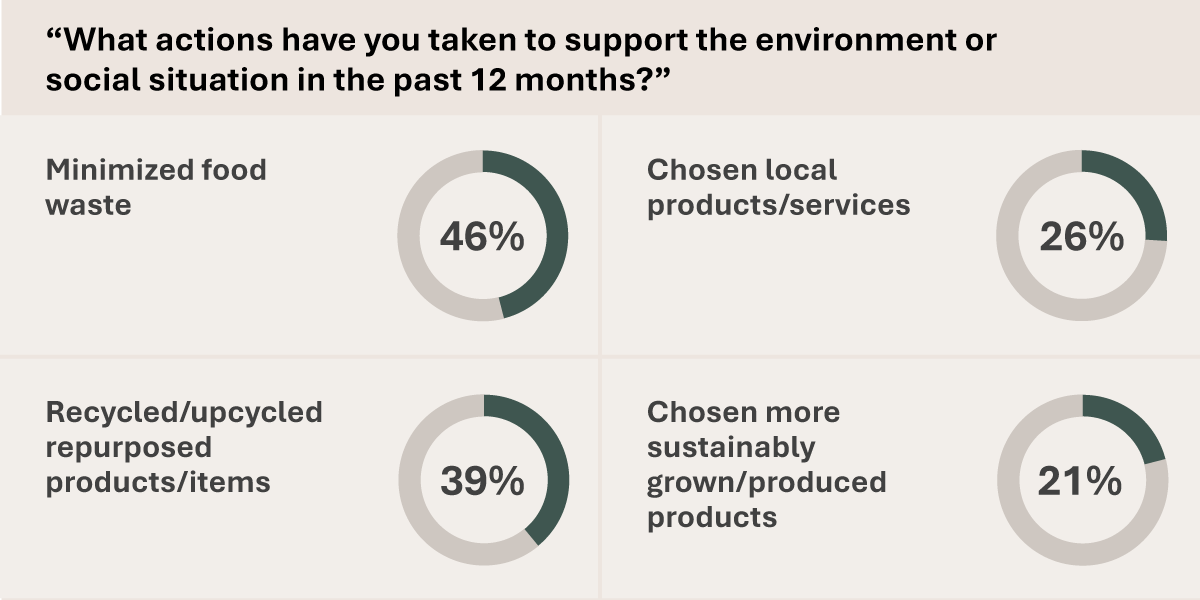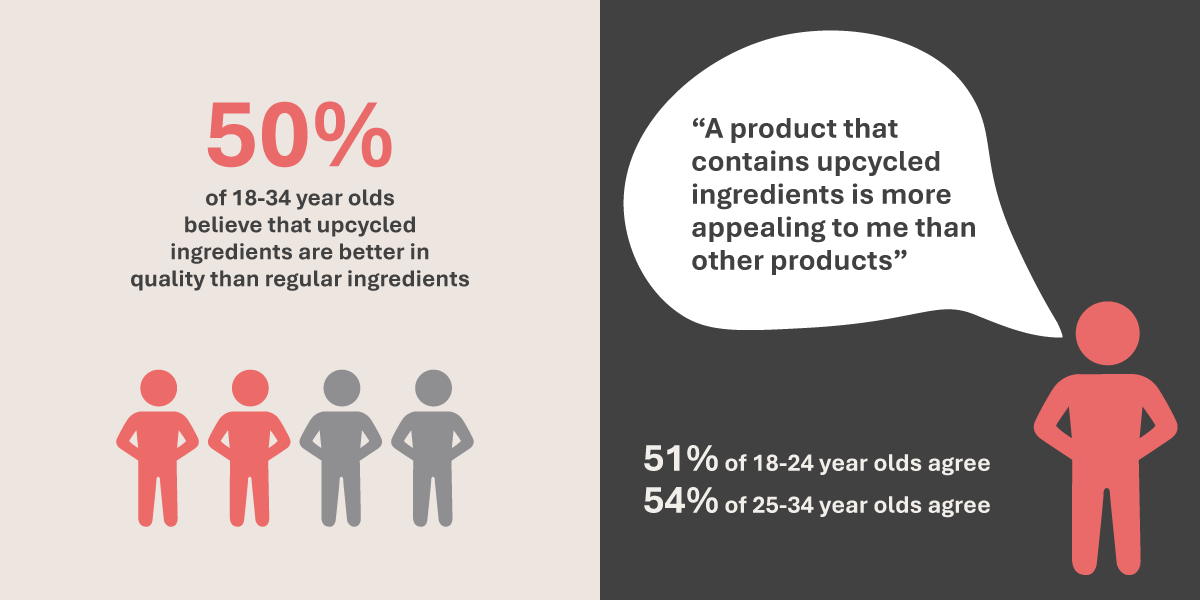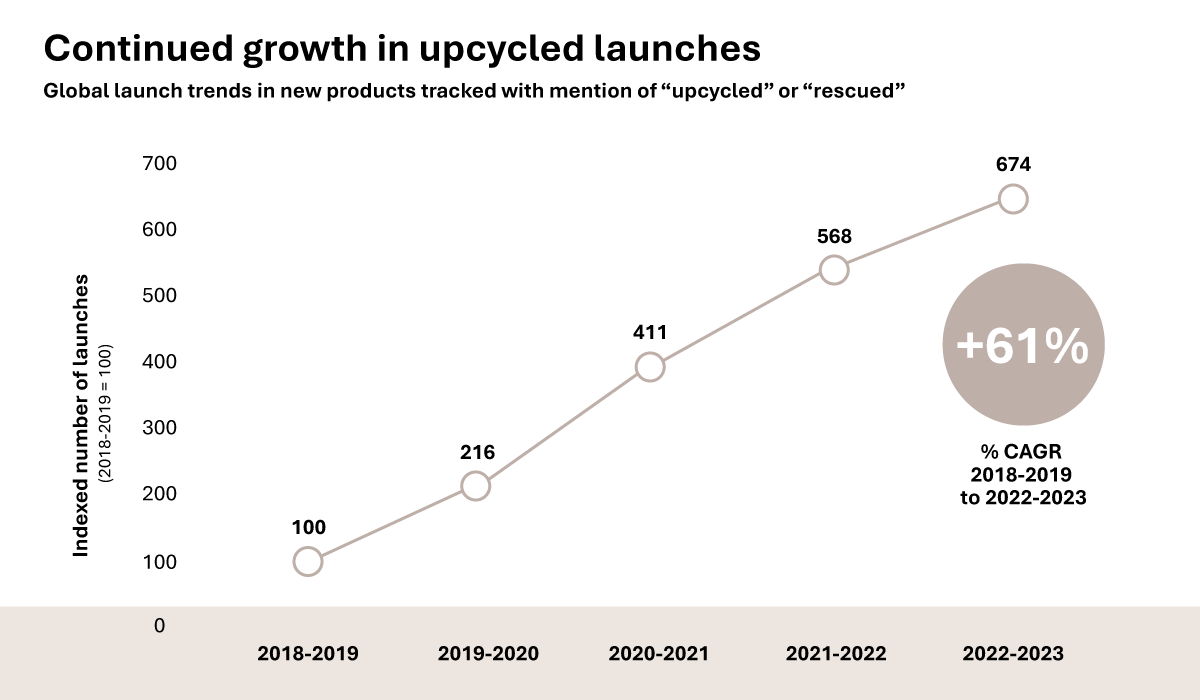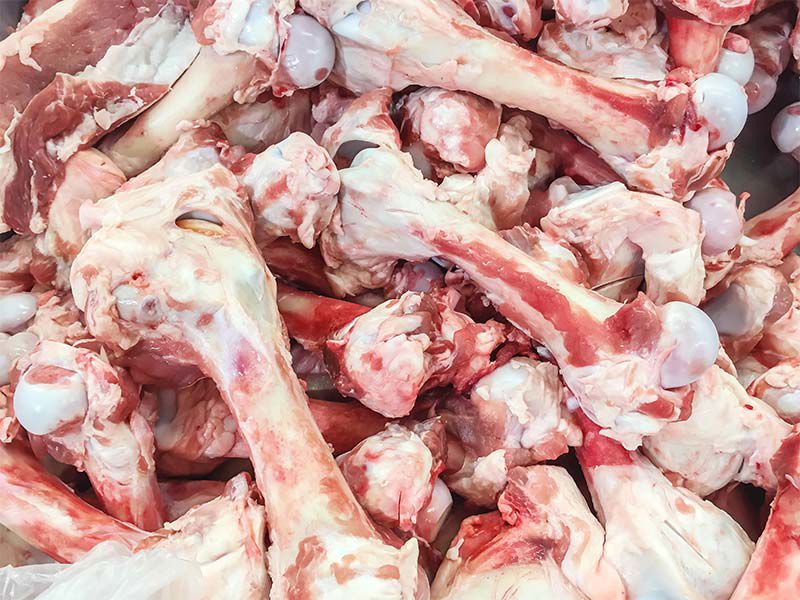Taking steps towards solutions
In an era where sustainability is more critical than ever, the concept of reducing waste and making the most of every resource has taken center stage. One of the most impactful ways to contribute to a sustainable future is by turning scraps and by-products into high-value products. This approach not only minimizes waste but also maximizes the utility of resources, particularly in food production. A significant aspect of this movement is the practice of "nose-to-tail" eating, which emphasizes using every part of an animal, reducing food waste, and promoting ethical consumption.
More ecologically conscious consumers are taking measures to ensure that they reduce their carbon footprint. Here are their responses:

Understanding sustainability and its importance
Sustainability refers to practices that meet the needs of the present without compromising the ability of future generations to meet their own needs. It involves careful management of resources, minimizing environmental impact, and fostering economic and social well-being. In the context of food production, sustainability means creating systems that are environmentally friendly, economically viable, and socially responsible.
The importance of sustainability cannot be overstated. With global populations rising and environmental challenges such as climate change and resource depletion becoming more severe, sustainable practices are essential to ensure food security, protect ecosystems, and maintain biodiversity. By rethinking how we use resources, especially in food production, we can significantly reduce our ecological footprint.
Upcycling: Turning scraps into high-value products
One of the key strategies in promoting sustainability is transforming what would otherwise be considered waste into valuable products. This concept can be applied across various industries but is particularly powerful in food production. The food industry generates a significant amount of waste, from vegetable peels to animal bones, sometimes used for low value purposes and otherwise ending up in landfills. However, with innovative thinking and practices, these "scraps" can be converted into high-value products, reducing waste and adding economic value.
For example, vegetable scraps can be repurposed into broths, compost, or even nutrient-rich powders. Similarly, fruit peels can be transformed into natural flavorings, essential oils, or even cleaning products. These practices not only reduce waste but also open up new revenue streams, making them economically beneficial.
In the animal industry, by-products like bones, blood, organs, and fat, often discarded, can be turned into high-value items like bone broth, organ meats, and lard. These products are not only nutritious but also have a growing market among health-conscious consumers.
The younger generation create demand
Young people are driving the upcycling movement which is a positive sign as the consumers of now and the future appreciate upcycled ingredients. 50 % of consumers aged 18 – 34 believe that a product that contains upcycled ingredients is more appealing than other products.

The concept of nose-to-tail eating
Nose-to-tail eating is a culinary philosophy that promotes using every part of an animal, from the nose to the tail, in food preparation. This practice is rooted in the belief that if an animal's life is taken for food, it is both ethical and sustainable to ensure that every part is used, minimizing waste. ‘Nose-to-tail’ eating goes beyond just the primary cuts of meat, like steaks and chops, and includes less commonly consumed parts such as organs (offal), bones, and even blood.
The concept is not new; it has been practiced for centuries in various cultures, particularly in rural and traditional societies where resources are scarce, and waste is not an option. However, in modern times, with the rise of industrialized food systems and the demand for convenience, nose-to-tail eating has become less common. The focus has shifted towards more marketable and "desirable" cuts of meat, leading to significant waste.
Reintroducing and popularizing nose-to-tail eating can have a profound impact on sustainability. By using the entire animal, the demand for more animals to be slaughtered decreases, leading to a reduction in the environmental impact associated with meat production, such as greenhouse gas emissions, water use, and land degradation. Moreover, nose-to-tail eating encourages a more respectful and ethical approach to animal consumption, aligning with the principles of sustainability.
Rise in new product launches
The upcycled products market continues to grow as consumers increasingly prioritize sustainability. Brands are innovating by transforming by-products into high-value ingredients, reducing waste, and creating new revenue streams. This trend is set to drive further innovation and eco-consciousness in various industries.

Stay ahead of the curve
At Essentia, we specialize in crafting high-value, premium upcycled clean label ingredients derived from the beef, chicken, pork, and seafood raw materials. Our ingredients are designed to enhance functionality, flavor, and nutrition, providing unmatched value for a variety of industries, including meat processing, nutritional foods and beverages manufacture, savory foods production, dairy alternatives, and pet food brands.
Why make this choice?
Our commitment to quality ensures that our ingredients not only meet but exceed industry standards, offering you the best in taste and performance. Whether you’re looking to innovate within meat processing, develop nutritional food and beverage products, create savory dishes, or explore new possibilities in dairy alternatives and pet food, Essentia is your partner in progress.
Let's collaborate
Looking to elevate your products with unique ingredient benefits? Reach out to a representative near you to explore how we can work together. Let’s co-create for solutions that optimize your recipes and propel you towards better business.



